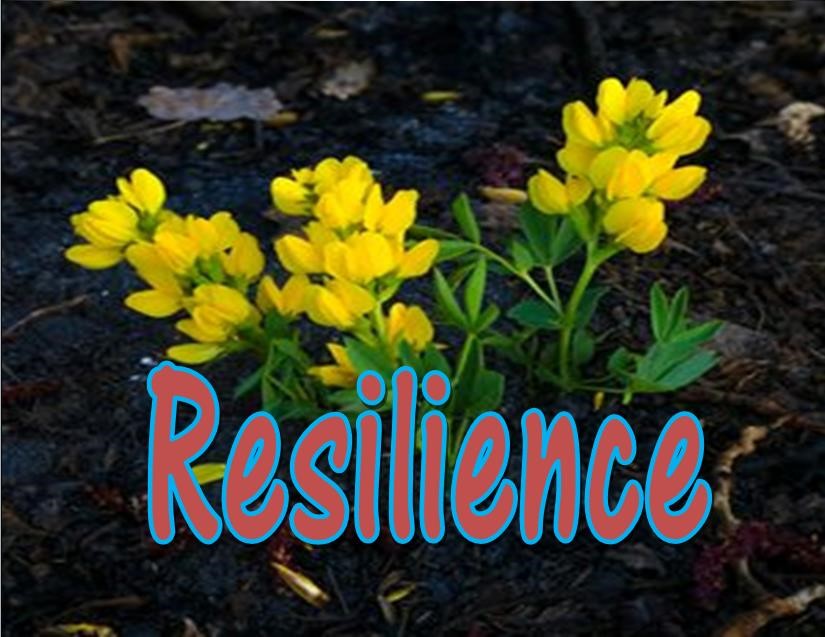
Resilience: A Necessary Skill for Recovery from Adversity and Trauma
Resilience is a necessary skill for recovery from adversity and trauma. How can resilience help you? Read on to find out more.
by Chinyere Nwosu
September 2020
Our current reality
COVID-19 has dealt a blow to the world at large. The economic systems of world powers are shaky, businesses are closing down or downsizing, families are doing their best to maintain health and safety, and schools shut down for over five (5) months. Individuals are not left out as the ravaging pandemic has given room for many unexpected changes in their lives and daily routines. Therefore, the individual is making the best of what is before him as he manages the disruption and change that it brings. Did I say change? Yes, change. Change is inevitable, and given our current realities, things have been difficult for a reasonable number of people.

And if the lockdown has been a relaxing moment for you, you will not deny the fact that you need new skills and a brush-up on your resiliency to thrive in the world that is opening to us as the pandemic ebbs. It is needless to say that the recent occurrences we had all faced with the pandemic came with some traumatic experiences which have left us with some traumatic stress. Oritz & Sinko (2020) report a mounting wave of trauma-based on on-line data as the search terms relating to key emotions associated with difficulties like fear and worry surged beginning from March 2020.
See the Socio-economic effects of COVID-19 by UNDP
There are also studies reports on the increase in the number of people showing symptoms of clinical depression and anxiety in America and other parts of the world. Trauma-related effects manifest in the wake of live adversities. However, the individual and community must develop responses that are enduring to manage and heal the trauma. According to resilience theory, it is not the nature of adversity that is most important but how we deal with adversity (see Greene et al, 2004). Resilience, therefore, provides us a road map through the uncertainty and difficulties that come with challenges in life.
What is Resilience?
Resilience is the ability to recover quickly from difficulties. It suggests toughness, doggedness, and flexibility.
In psychology, resilience is a psychological quality that allows someone to be knocked down by adversities of life and come back at least just as strong as before.
We can therefore conclude that resilience –
- Is a process
- Involves adaptation
- Required in the face of adversity, trauma, tragedy, or threatening and stressful situations
Change affects people differently. It brings out strong emotions, unique and varied thoughts as well as uncertainty. A plague like the COVID-19 pandemic brings unpredictable and life-altering incidents with it. We look forward to recovering our lives and the future. However, we need to develop some resilience. This process will entail that we develop new skills. Therefore, building resilience takes time, requires strength and help from others.
Physical, emotional, and psychological resilience help an individual build balance.
The Role of Resilience
Resilience brings personal growth. In as much as the process is complex, going through it is even more rewarding. It points out the aspects of your life where you need to grow, the parts you have mastered, and can control as well as things to modify.
Becoming more resilient empowers you. It takes away the illusion that life is a bed of roses. You face difficult times with courage.
As you become more resilient, your emotional strength grows, and you develop coping strategies. This development is possible because distress brings emotional pain and stress, however as you work your way through overcoming the trauma, you will also learn to manage as well as control your emotions and remain calm and focused. You are also able to understand how other people feel. Overall, the process makes you more empathetic. Research has also shown that people who believe that intellectual and social attributes are learnable show lower stress response to adversity.
The Myth About Resilience
Some people believe that resilience is a personality trait. Therefore, they attribute the skill to some individuals. This belief makes people helpless in the face of adversity, trauma, or other challenging life circumstances. It is worth mentioning here that resilience is a skill that anyone can learn. It involves thoughts, emotions, and actions. Hence the saying – change your thoughts to change your life.
Just like you need exercise and other physical activities to build your muscle, developing resilient skills need persistence.
References
APA – Lagos (Nigeria), Nigerian Economy, and Traumatic impact of COVID-19 pandemic. American Press Agency.
Fleming, J., Ledogar, R. J., (2008), Resilience, and Evolving Concept: A Review of Literature Relevant to Aboriginal Research. PMC, Canadian Institute of Health Research.
Greene, R. R. (Ed.). (2002). Resilience: An integrated approach to practice, policy, and research. Washington, DC: NASW Press.
Kendra c, (2019), What is Resilience?, Very Well Mind
Moore, C. (2020), Resilience Theory: What Research Articles in Psychology Teach Us,
Oritz, R., & Sinko, L., (2020), Responding to the Trauma of COVID-19 – Individual and Community Actions. Health Policy Sense

Pretty! This has been a really wonderful post. Many thanks for providing these details.
January 22, 2024 at 10:47 amIt is better to develop this skill than to use drugs.
January 27, 2024 at 6:34 pmYou need resilience to trade.
January 29, 2024 at 5:34 amRelax, God is in control
February 3, 2024 at 1:45 pmRecovering from trauma is so difficult.
February 6, 2024 at 3:51 amThis is quite helpful to me. Thanks for sharing
February 6, 2024 at 1:47 pmPersist. Good one
February 8, 2024 at 11:25 amRecovery from trauma may be slow but if you keep working at it, it gets better.
February 9, 2024 at 1:35 pmIt takes a strong will to keep going. This is really good. Thanks for sharing.
February 12, 2024 at 10:49 pmThese days, people struggle to recover from trauma. Thanks for this tip.
February 18, 2024 at 10:32 amRecovery can be slow and sometimes, it seems impossible. Thanks for sharing this here.
February 18, 2024 at 9:42 pmhow does tornado cash work
February 26, 2024 at 3:56 pmResilience grows with practice
March 4, 2024 at 12:10 pmThanks for sharing
March 10, 2024 at 8:31 amGood for your health. See happy family store pharmacy
April 1, 2024 at 8:13 am